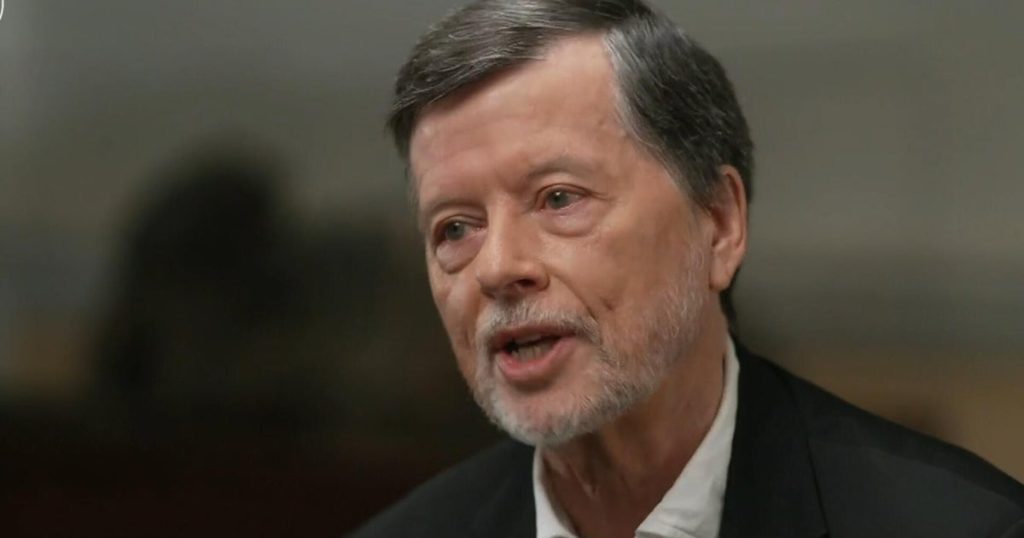Filmmaker Ken Burns has strongly criticized recent funding cuts to the Corporation for Public Broadcasting (CPB), calling the action “shortsighted.” In a recent interview, Burns emphasized the vital role public media plays in providing accessible programming, especially in rural areas. As the White House has increasingly targeted public broadcasting, combined with ongoing federal budget discussions, the future of outlets like PBS and NPR hangs in the balance.
| Article Subheadings |
|---|
| 1) Background on CPB and Public Broadcasting |
| 2) Burns’ Concerns for PBS’ Future |
| 3) The Importance of Public Media |
| 4) The Impact of Streaming Services |
| 5) Conclusion and the Call to Action |
Background on CPB and Public Broadcasting
The Corporation for Public Broadcasting, established in 1967, has been instrumental in funding and supporting public media outlets across the United States. The organization provides federal funding to PBS (Public Broadcasting Service) and NPR (National Public Radio), critical sources of education, news, and cultural programming. This funding enables these entities to operate independently from commercial pressures, allowing them to serve a diverse audience effectively. However, in recent months, public broadcasting has fallen under scrutiny from government officials, leading to unprecedented funding cuts.
Burns’ Concerns for PBS’ Future
In an interview broadcast on “Face the Nation,” Ken Burns conveyed serious concerns about the viability of PBS amidst the financial cuts proposed by the White House. Burns, renowned for his comprehensive documentaries that have spanned decades, emphasized that financial stability is crucial for PBS to continue delivering informative and enriching content. He expressed a long-standing worry about the network’s future, highlighting its essential role in American culture. Burns stated that reducing funding neglects the quality programming and educational services that the network provides to millions of viewers.
The Importance of Public Media
The importance of public media extends beyond entertainment; it serves many essential functions in society. PBS, for example, broadcasts children’s educational programming, critical information on homeland security, agriculture, and weather emergencies. For many Americans, especially in rural areas, PBS is often the only source for such vital information. Cutting funding not only jeopardizes these programs but also the jobs of thousands who work in public broadcasting. Burns likened PBS to the “Declaration of Independence applied to the communications world,” advocating that public broadcasting reflects democratic values and serves communities equitably.
The Impact of Streaming Services
Amid the rise of streaming platforms like Netflix and Hulu, the landscape of content consumption has dramatically shifted. While these platforms offer convenience, Burns pointed out that they often do not allow for the same in-depth storytelling approach that PBS provides. He stated that projects like his own documentaries often take years to develop and would not be feasible in a commercial television environment. “I couldn’t do any of the films I’ve done without them being on PBS,” he noted, highlighting the unique space public broadcasting occupies in nurturing long-form, thoughtful storytelling.
Conclusion and the Call to Action
As the discussion around public funding continues, the consensus among many advocates, including Burns, is that public broadcasting serves a crucial societal role. The cuts proposed would not only have immediate impacts but could also reshape the media landscape for future generations. Burns urges public support and for citizens to advocate for the protection of public media, expressing fears that “we’re throwing the baby out with the bath water.” He believes that without public broadcasting, the rich tapestry of storytelling integral to American culture will drastically diminish.
| No. | Key Points |
|---|---|
| 1 | Funding cuts to the CPB threaten essential public media services. |
| 2 | Ken Burns warns of the detrimental effects on PBS and NPR. |
| 3 | Public broadcasting plays a critical role in rural areas and emergency services. |
| 4 | Streaming platforms may not provide the same depth of content as PBS. |
| 5 | Public advocacy is essential for protecting the future of public broadcasting. |
Summary
The potential funding cuts to the Corporation for Public Broadcasting signify a critical juncture for public media in the United States. As highlighted by Ken Burns, these cuts not only threaten vital programming but also the very foundation of public service broadcasting. The future of PBS and NPR may depend on public advocacy and recognition of their invaluable contributions to American society and the preservation of democratic values.
Frequently Asked Questions
Question: Why is funding for public broadcasting being cut?
Funding for public broadcasting is being proposed for cuts due to a shift in government priorities, with some officials claiming that public media spreads bias in its coverage.
Question: What role does PBS play in rural communities?
PBS serves as a critical source of information and education for rural communities, often being the sole provider of programming that includes news, children’s content, and emergency information.
Question: How do public media and streaming services differ?
Public media focuses on in-depth storytelling, educational content, and community service, whereas streaming services typically prioritize entertainment and may lack the same commitment to public interest programming.


